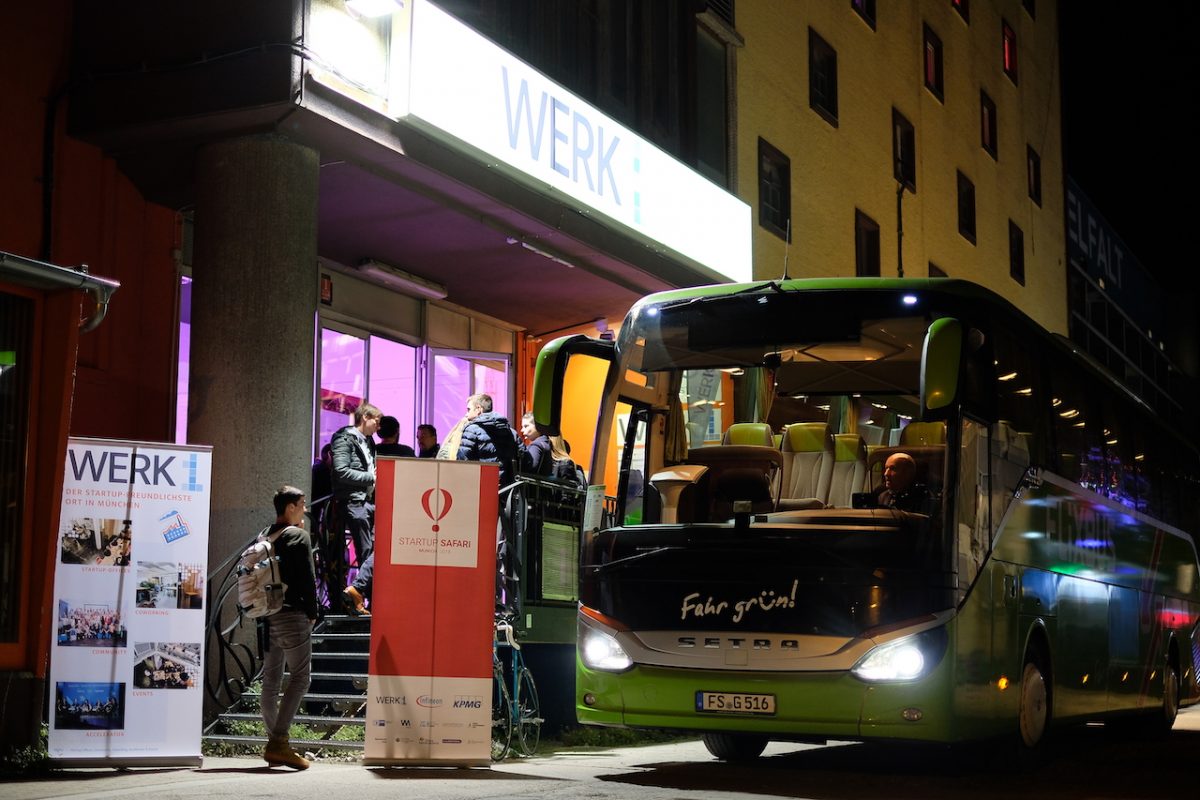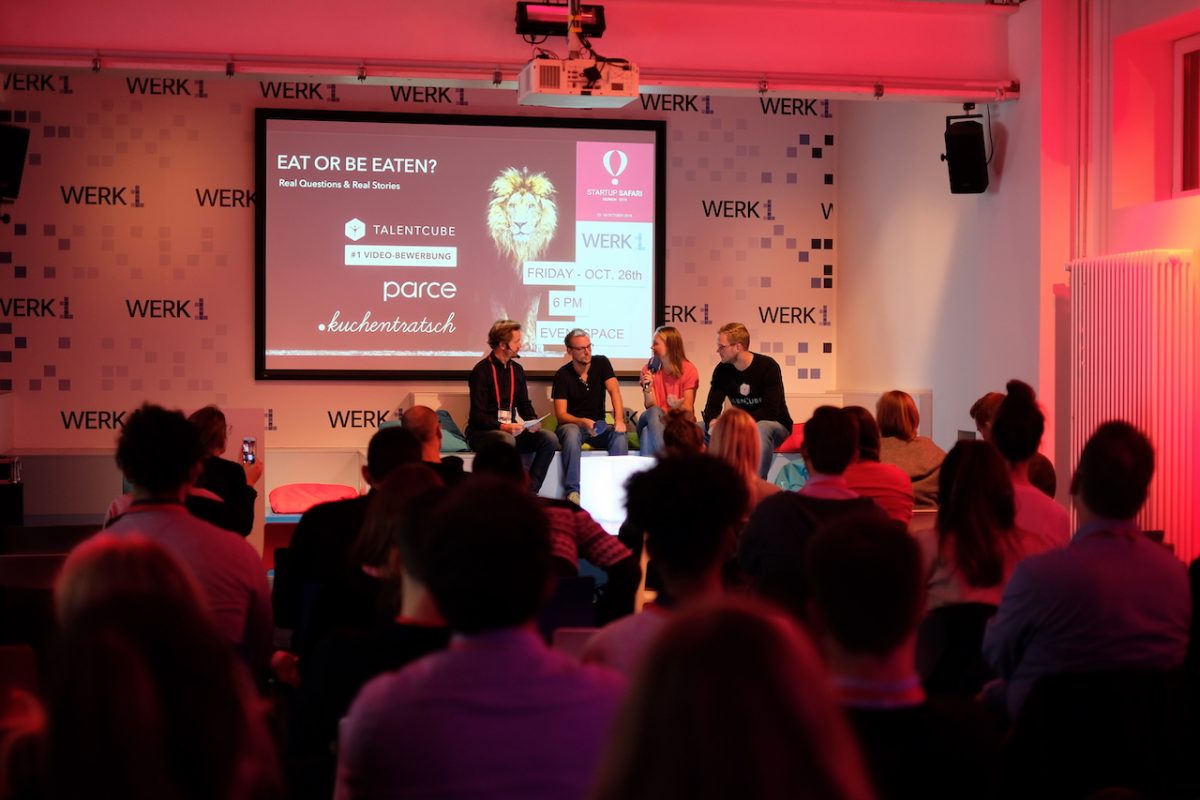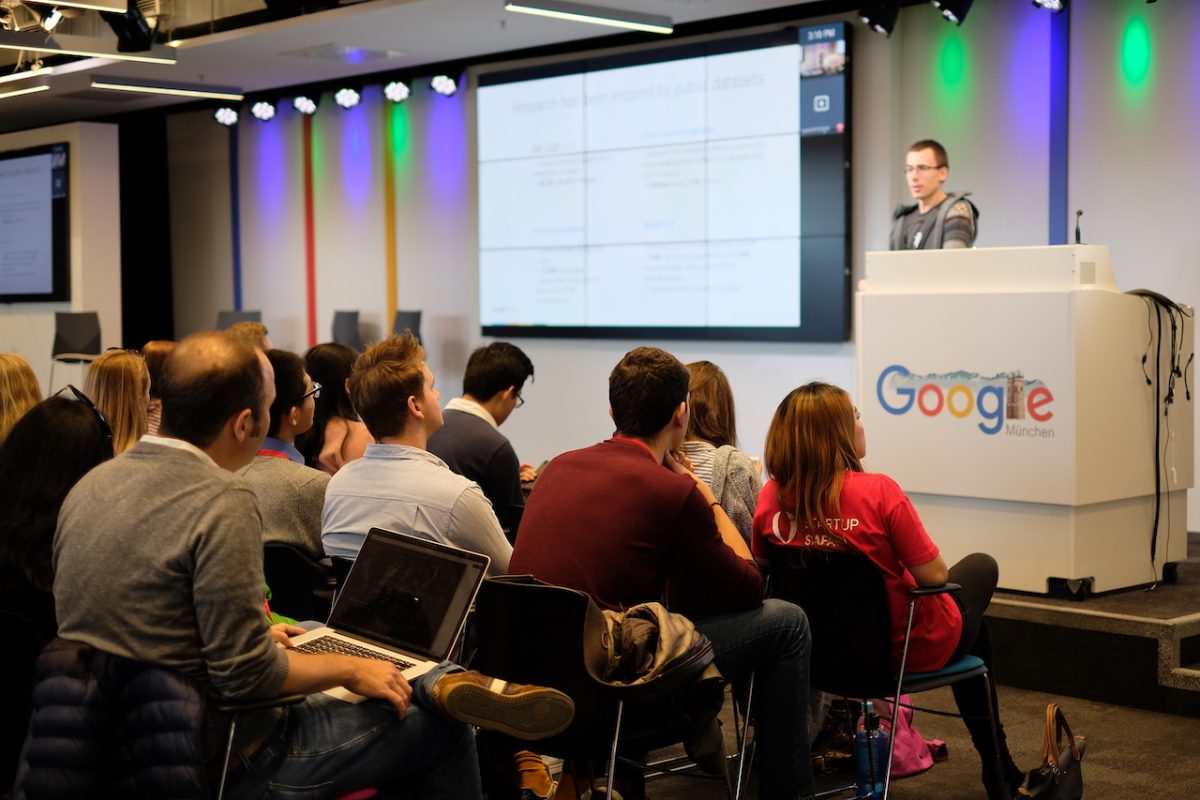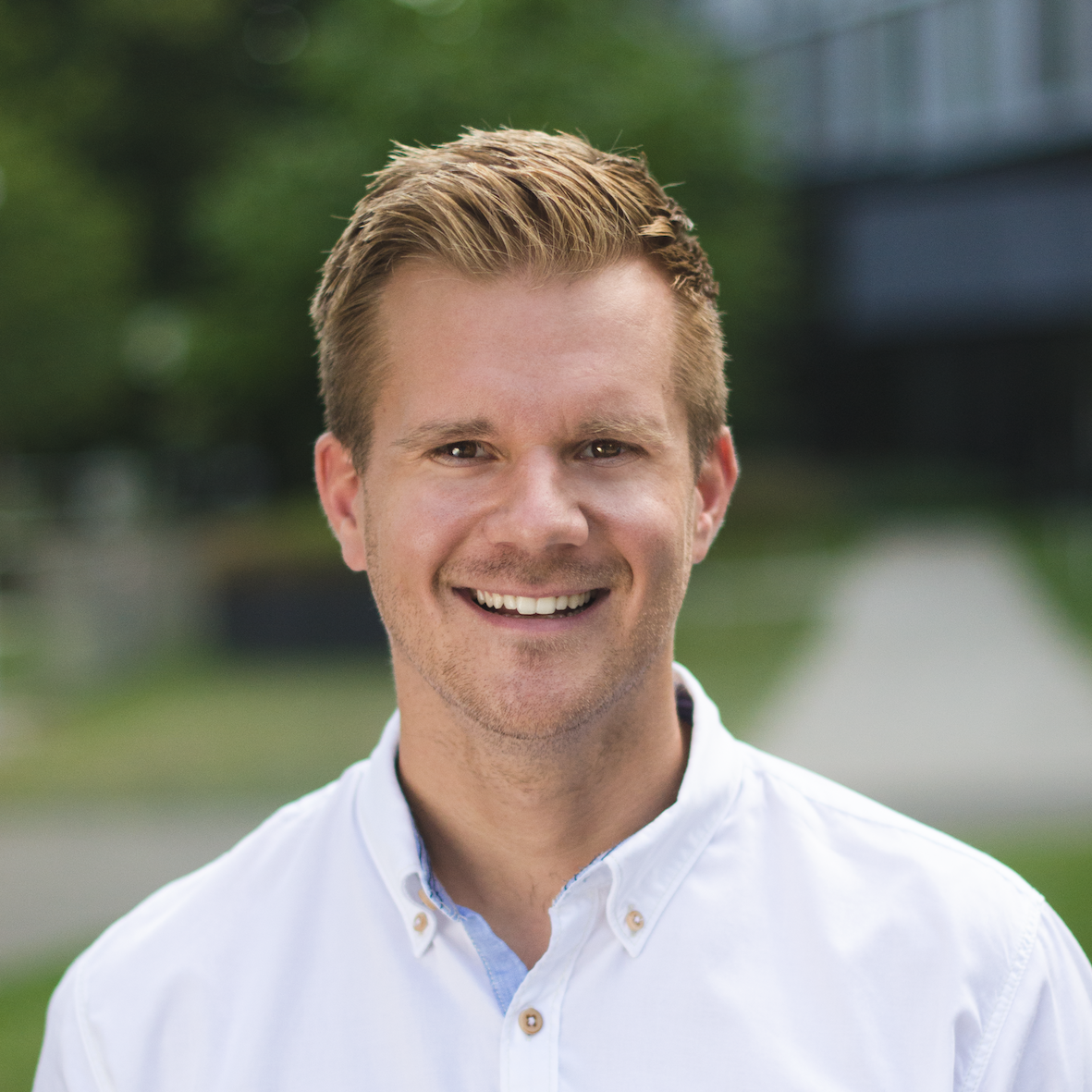The second Munich Startup Safari starts on 22 October. For those who haven’t heard of it yet: What exactly happens on this exceptional safari?
The Startup Safari is basically a “week-long open house” that provides unique access to the startup and tech scene in Munich. For four days, all of the key players open up their hallowed halls and host interesting workshops, panels, AMAs (note from editor: Ask Me Anything sessions) or parties.
In total, there are 35 locations and more than 100 sessions. That includes success stories from well-known founders, pitch coaching and term sheet workshops, exclusive insight into tech giants and even corporate innovation workshops for large companies.
The participants book the sessions they’re interested in and put together their very own personal schedule. They then explore Munich for four days to learn, interact with others and take the next step. And that’s what makes the Safari special. There isn’t a set schedule. Every person creates their own program to perfectly suit their current needs. And that’s regardless of whether you want to learn how to negotiate a term sheet, make the perfect pitch or simply get to know the scene or find inspiration.

A “week-long open house”
Which players from the Munich startup scene will be participating? And are there any highlights that you’re particularly excited about?
We have more than 100 sessions and partners. That makes it really difficult for me to choose. We have startups — if we can still call them that — such as Flixbus, Freeletics, Personio, Stylight; global companies like Google, Infineon, EY or Audi as well as accelerators and initiatives like WERK1 and government entities. We’ve put together four different journeys that I would like to give a few examples of:
Inspiration & Networking Journey
- Freeletics – From idea to worldwide release
- Flixbus – Open office (Behind the curtains of a unicorn)
- YFood: From 0 to 100 – Two years to double-digit million sales
Startup Journey
- From founding to funding
- Term sheet jargon explained – How to not fuck up the round before it even started
- UX Review: What your customer never told you
- Funding rounds – Common pitfalls, Do’s & Don’ts
- Demystifying patents – How to protect your software & business model
Corporate Innovation
- 11 Hands-on hacks to drive positive change in organizations (workshop)
- Bring your problem – find your solution
- Rethinking Corporate Innovation (Panel)
- Increase efficiency with Artificial Intelligence
Plus the Jobseeker Journey, which gives access to all startups, companies and initiatives and is topped off with Startup Work — a job fair for students and job seekers on Friday during the Safari.
Individual journeys for each participant
Who do you want to reach with the Startup Safari?
The second special aspect of the Startup Safari is that it doesn’t have a set target group. Like I said earlier, each participant can put together their own perfect journey. Students can be inspired by well-known entrepreneurs, find their first job or learn how to start a company.

Startups can take part in specific workshops to learn essential things that are important for them right now and for the phase they’re in. They can also meet investors and win over companies as customers.
“A founder and a startup are only as good as the ecosystem that surrounds them.”
There are many opportunities for corporations. They can meet startups, discover new trends and learn how to employ cutting-edge technology in their own corporation. There’s also a dedicated Corporate Innovation Day that is solely about innovation in corporations.
Why do you — from a founder’s point of view — think access to an ecosystem is so essential? Do you really need a ‘city to raise a startup’?
I firmly believe that. A founder and a startup are only as good as the ecosystem that surrounds them. Having the best idea in the world is of no use if you can’t find colleagues or have access to investment capital, customers and highly skilled employees. And it’s not only about these “hard facts,” but also a community of like-minded people. I truly believe we need to stick together and support each other as founders. We don’t have the resources that a corporation does, which is why we have to find different ways to reach our goal. And that can only work in collaboration — which also happens to be the slogan for the Startup Safari: #strongertogether.
It doesn’t matter if it’s introductions, sharing experience or recommendations that take a founder and their startup to the next level. All of it can only work in a functioning ecosystem. And that absolutely is not something that we can take for granted — we can only create an ecosystem together as a community.

And from your perspective as a founder as well: What is still missing in the Munich ecosystem?
Just two things. Greater openness and more capital. When I say greater openness, I don’t mean the startup scene itself. The community in Munich is already very special. I wouldn’t even call it a community anymore, but rather what we call ourselves: the Munich startup family.
Not corporates vs. startups, but rather corporates and startups
The distance is still too great between the startup scene and corporations and the government. Don’t get me wrong: Both parties are doing so much in this area, and we’ve made an insane amount of progress. But I still want us to become even closer.
For me, it’s not corporates vs. startups, but rather corporates and startups. Collaboration can lead to magical things, especially in Munich. We have almost all relevant DAX and MDAX corporations here. That’s a situation you rarely find anymore in the world. We need to make use of that.
And last but not least: Capital — and this is a German problem, not a Munich-based problem. We need more VC in the country. We need to be able to complete the same rounds as a Chinese or US investor. At least over the long term.




